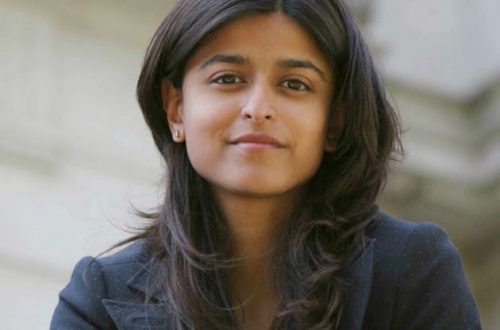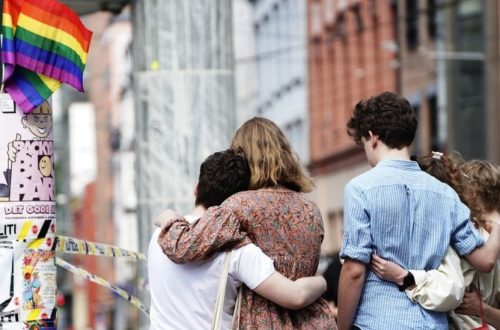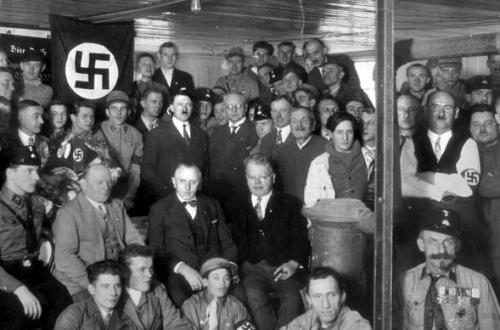This is a guest post by Yasmin Baruchi
Credit where credit’s due. It was “Visit my Mosque” day this Sunday – a full day initiative led by the Muslim Council of Britain (MCB) . Mosques across the country opened their doors to the wider community to come in for tea and a chat. Though I’m no fan, it should be commended that the MCB at least attempted to address the question of their role and relevance as the most prolific representative of Muslim communities in Britain. Clearly, having being snubbed by Eric Pickles when he reached out to Mosques directly last week, the MCB felt that it should make its presence felt.
Cue the PR releases- “Visit my Mosque” was the result.
But despite the good intentions, I wish it wasn’t. I wish it was something more…meaningful. Less lazy. I can see what the MCB was trying to do but unfortunately they missed the point yet again. The exercise seemed positioned to help clear up what the MCB push are widespread “misconceptions” about Muslims and Islam. Opening the Mosque doors to the wider community may help de-mystify what happens behind those doors for those who are suspicious of its activities. And I agree this is important for community cohesion. But I’ll wager that the overwhelming proportion of the visitors on “Visit my Mosque” day will have been open-minded, tolerant, respectful individuals who do not bear any ill will to Muslim communities, not the people who really need to be reached. Those who foster a hostility towards Islam and Muslims due to the actions of a few and need to be convinced that Mosques are doing their bit.
It seems whenever the Muslim community is asked to outreach and engage- the immediate answer is “come for tea and cakes at the Mosque”. I’m sorry but I don’t think that’s enough. It goes nowhere near to address the true issues that impact on community cohesion and integration- issues that have arisen in part due to the role of Mosques in the communities and what they have been preaching to date. The issues I and others have discussed before that no doubt feed suspicion and apprehension towards Muslims. What does tea, cakes and a guided tour of the minbar and minaret for non-believers do to address radicalisation, anti-western narratives and Islamist infiltration of our own communities? After all, these are the core of the problem and biggest strain on community cohesion.
As a side note, I can’t help feeling “Visit my Mosque” comes off as rather arrogant of the MCB, and is another example of “come to us” which implies that the problem is the lack of understanding on part of non-muslims. Arrange teatime at the Mosque and the MCB thinks “we’ve done our bit- now it’s your job”. I mentioned “lazy” earlier as that’s exactly what it is. People want to be reassured that the Muslim community is doing all it can to root out the risks of radicalisation and that is recognising its own challenges. Instead, we have Dr Shafi- Head of the MCB say he has “no idea” how young people are becoming radicalised and not making any obvious moves to find out either it seems. There is no sense of the MCB encouraging itself or indeed its affiliates to step out of their own comfort zone and really reflect- that’s a job for everyone else. Rather than finding ways to reach out, the onus is always on pulling in. If I was to be really cynical, the whole thing sounds like a thinly veiled Dawah drive but I concede that may be overly harsh.
If anything, the initiative sheds brighter light on how redundant the MCB actually is. Whilst they run a drive to engage with the wider community- their ineffectiveness at engaging with their own affiliates is made woefully clear. Their website boasts over 500 members- so why then did only around 20 Mosques agree to partake? How then can the MCB complain about being over looked by the Government and claim the establishment is overlooking an important representative voice? Quite clearly, its not. Rather than accusing the Government of being aligned with the far right (as Harun Khan, Deputy Head of the MCB did a couple of weeks ago) and attempting to sideline “normative Islam” that the MCB claims to represent, it needs to honestly appraise their own position and failings than ceaselessly deflect in all things.
The other major gripe I have with “Visit my Mosque” day – is the one demonstrated in high definition by Channel 4’s Cathy Newman’s encounter with Streatham Mosque. Cathy attempted to visit the Mosque “respectfully dressed” and was swiftly “ushered” out”. To be fair, Streatham Mosque was not partaking in the initiative but what better way to demonstrate the hypocrisy of the day. Whilst the MCB is presenting a handful of Mosques as open, welcoming buildings, as a woman, I know they are on the whole anything but when people aren’t looking.
There are many Mosques in the UK that have their door permanently closed to Muslim women. I grew up in a city where all the Sunni Mosques are still men-only spaces. When this was queried, the explanations given range from “women are prone to gossip and backbite when they get together” to “women would distract men from prayer”. This is still a widespread attitude in many communities. Admittedly there are some Mosques that have started catering for women- but more often than not as an afterthought. Women’s spaces are hardly ever as big, well furnished, heated, or maintained as the men’s areas. This tells us plenty about the position in which women are held- something that the MCB could address with it’s affiliates if it really wanted to seeing that it’s leader confesses it has “no idea” on how to tackle radicalisation.
One of my childhood best friends is an Imam’s wife and I was talking to her about a month ago about the work her husband does to engage outside the Mosque. On a voluntary basis, he set up a soup kitchen and food banks open to all, and runs events to raise money for non-Muslim charities- choosing to focus on local charities instead. One of her biggest criticisms of how the Mosques and Muslim organisations have worked to date is that they are so insular- an example she gave to her husband: that Muslims are often hailed as the biggest givers to charity- but invariably to Muslim causes. Her question to her husband and anyone else that will listen is “what are we Muslims doing to contribute to a better society for all- not just for ourselves, not just for us Muslims”. That’s outreach, that’s integration, that’s working together. People like her and her husband give me hope.
Perhaps if the MCB could similarly look outside their own back yard and take women seriously like my friend and her husband every once in a while, we would take them a little more seriously too.


